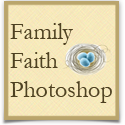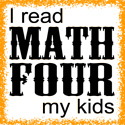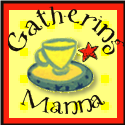THE BENEFITS OF PLANNING THIS WAY
Although a lot of the planning for KONOS is already laid out in the book, I just like to write it out on paper because when I WRITE notes, I remember them better. If you don't like writing, you can buy the KONOS book and make notes in your margins in pencil (or make photocopies and mark them all up in pen and check things off as you do them). You could make photo copies of the KONOS Volume and cut them and put them on baseball card holding pages also - and pull out each individual cut assignment and throw it away as you do them. Or you could use my planner or one of the many other great planners out there. Cindy Pilling has a great planner, I hear. I just haven't ever been able to afford to buy a planner, so I made my own after seeing what a few other KONOS moms did.
I tend to get distracted and have a hard time with follow through. That is why I have struggled so long (I'm about to embark on my 6th year of homeschooling) to come up with a method of planning that helps me get the job done (I struggle with hyperfocusing and rabbit trails if I don't really plan well). My method of planning helps me in these three ways:
1. Reading, writing and re-typing or re-writing helps me more readily remember what I'm supposed to get done.
2. Having things on a calendar helps me to have a better grip on the time frame of the unit so we don't get as far behind schedule (especially if there is a "wrap-up" planned).
3. When I plan this way, I have an overall "bigger picture" of what we are learning so I can keep focused on the goal and tie our everyday life into the process.
PENCIL TO THE PAPER
Here's what I do when I plan:
1. I Read through the unit I want to do. As I read, I use my Planner to write down the books, examples, bible verses, activities and other items that I plan on doing. I usually do this on scratch paper first and then re-copy or type it onto my planner. Keep in mind that it is IMPOSSIBLE to do every activity, so you have to let some go - even if they seem fun (be realistic and try to stick to a doable time frame).
2. When I write the activities down, I Re-NUMBER or Re-LETTER them on my Lesson Planner page. This may seem odd, but it works for me. In other words... in the book, the activity may be "p. 279 activity bbb" and the activity description may be "plant a seed in a cup and watch it grow over the next 10 days while you record changes in a journal". This is completely a bogus and hypothetical activity, but just for explanation purposes, please humor me. That is a lot to write down! Instead of writing all of that, I usually just write something like this: "plant seed in cup, journal for 10 days" on my scratch paper. I don't need to go back to look that up again since it is cut and dry. I only have to refer back to the KONOS Volume book if the activity is a long and detailed assignment. So, with a list of items that may or may not need explaining and looking up, I find it easier to just re-number them. Therefore the "p. 279 activity bbb - plant a seed in a cup and watch it grow over the next 10 days while you record changes in a journal" becomes "A. plant seed in cup, journal for 10 days". Much easier, right? Here's the catch: If you have a long and detailed assignment or discussion and you KNOW you'll need to look at the KONOS book again to complete it, just add the actual page and letter as a note in parentheses at the end. You won't have to do it on all of them, so re-numbering or re-lettering will save you time. Then you can easily add ONLY YOUR NEW NUMBER OR LETTER ("A" in this case) to the calendar page on your planner for the day that you hope to accomplish the assignment. [It makes much more sense if you look below at the actual calendar box.] Therefore, your Day 1 box might have your regular schedule and a brief run-down of KONOS assignments by letter or number. See the example below for my scheduled day for tomorrow:

3. Now that my unit is planned out, I use the checklist to remind myself of the things I need to get done, make notes as I need to as I plan wrap-ups or field trips, and I use the book list to check the books out at the library instead of taking my KONOS Volume with me (too heavy). Of course, if I do take my KONOS Volume to the library, I only take a tiny section of the book (since I had the binding cut off and had it 3-hole drilled at Kinkos for less than 5$) so that I could take ONLY THE SECTION I'M WORKING ON with me. If I don't find the books I need at the library, I don't put a check mark by it on my planner and I usually gather whatever else is there on the shelf that pertains to the Unit. Sometimes I request ideas for favorite activities and books from other KONOS moms who have already done the unit, too. It is a good idea to search the archives and database for book suggestions and activity ideas on the KONOS e-list as well. Sometimes moms come up with additional things that are not in the KONOS book which sound really fun... and I have found many extra library books through word-of-mouth or email suggestions. Family Fun Magazine is another good idea if you are really crafty and want to add extra crafts in.
4. Each week as I prepare to do the week's assignments, I write detailed plans (page numbers of Math sheets and other books, devotional page numbers, etc.) on my Teacher's lesson planner. I also make daily lists for the kids to check off as they complete each assignment. They get allowance if they complete their chores and get their school work done. These daily lists (usually printed on the computer, hole punched, and kept in their assignment binders) are for them and help them stay on track.
5. As we accomplish our planned and assigned work, I cross out or highlight the items I do while adding them to my teacher planner as completed items. That way, my teacher planner (lesson planner) has the completed items I've done as records for the children should they ever need them (my blog also has a record for my kids - a virtual portfolio of sorts... but if it should ever go down, I have a hard copy of the lists I post here as well). The teacher planner is what I use to create my final lists of what we did for my blog. I have one for each year we have done school and continue to keep a book list that has all of the names of every book we have ever read at home. The reason I write the activities we do down as we go through our day (even though I had plans for the day written already and it seems like EXTRA work) is because PLANS CHANGE. Sometimes we do well over the amount we planned. Sometimes we end up on a rabbit trail and learn something I had no idea we would study about. Sometimes we get interrupted by friends and other life circumstances and end up going somewhere or doing something that I had not listed. Sometimes the kids come up with additional activities on their own (such as last week when my son built a submarine out of Legos for our ship unit - completely of his own accord during his free time... and I consider that an educational and creative activity worthy of recording). If I don't get things accomplished on my plans for the day, I can either cross them off or move them to the next day. Using different colored highlighters for the days you do things can also help you not to have to re-write your plans. For example: If you know that all the yellow marked items were done Monday, you can know that Tuesday you will need to mark off the rest of Monday's uncompleted items in your Tuesday Pink Highlighter.
STORING YOUR PAST RECORDS
If you can't tell, I like to make lists and keep records. I don't think I'll ever have any trouble if we end up moving to a place where records are necessary. I also keep boxes of paperwork from each year that we do school... so most of their work is available if I need to go back and look at it. One summer after we move to another house, I plan to let the kids help me make ACTUAL "Portfolios" from each year and get rid of the things they don't care about anymore. Then I'll have binders on a shelf instead of boxes in a closet! Oh, how nice and orderly that will be! A girl can dream big.
Other Quick Links:Sprittibee's Homeschool Series (Links for our field trip lists, book lists, other school years...)
KONOS Planning for Dummies
Sprittibee's KONOS Unit Planner (Please leave a tip if you use my planners! No tip too small!)
Homeschool Planner Setup (or as my kids call it: "mommy's Brain")
Back to School Interview with Sprittibee (scratch the Picture This curriculum - we never got it)
Rainbow Days (My Weekly Schedule)
Subscribe to Sprittibee by Email
Buzz Words: schedule, planning, school, learning, unit study, homeschool, homeschooling, education, lesson plans, parenting, organization, plans, teacher, curriculum, lessons, unit study, character, KONOS, elementary















































8 comments:
I needed this, thanks for posting it!
God Bless,
Amber
You are welcome, Amber. :)
While I don't use KONOS, I'm glad you submitted this because I'm in the middle of lesson planning for the upcoming year and you've given me some useful ideas :-)
A fellow list-maker...big grin. While we use a more classical CM approach, I plan in the same way. Now that my kids are older, I have switched things up and put all the plans on the computer, so that I can print them out for them. They are learning to put the week's readings ,etc into our their planners reflecting our weekly schedule. It is a great next step!
Hello, I just read your post and, with HUGE respect... when do the children have time to play? Maybe you have covered it some place else on your blog and I haven't read it yet, this is my first visit to you!Will take a closer look. God bless.
Ruthsean - Fair question. ;) We were on a 3-4 day school schedule during this time (husband was working nights ). They started school at 1 or 2pm and finished at 9 or 10 pm and we went to bed at midnight. They played with Daddy in the morning before he left for work. The only requirement was that they were to get their morning chores and bible tasks done before they played. Mostly, they played video games and board games with him. Sometimes he would take them on walks in the morning and then the PE time in the evening was redeemed for play. Also, they had ample time off on the days when he was home. Sometimes his weekends were Sunday/Monday. Sometimes they were Tues/Wed. We never did school on Sunday, so on some weeks, they had 3 days off (only 4 days of school).
Now that we have moved back to TX and Daddy will be working days again (and getting regular weekends off most of the time), and now that my mother will be living with us... we may tweak this schedule to do 5 day school weeks and make the days shorter.
Thanks for answering my question. Appreciate it! I went through some of the posts and comments about 6 day creation and am amazed by what I saw. Well done for standing up for God. I didn't read it all, it would have been too much for me, but I admire your stance on the subject. It's hard for non believers to understand this. They are blind to the things of God. It's like the Gospel, so simple that a child can understand it... if you trust God enough. I believed in evolution and then I got saved! I was utterly shocked by the very real presence of God and how He loves me and forgave me and moved into me. I know that whatever He says is true. Did He make the world in 6 days? He says very clearly that He did... so He did! These people need the Gospel explained to them on very simple terms and then we leave the rest to God. If he saved and atheist like me he can save anybody! Keep up the good work, good and faithful servant.
Thanks Ruthsean. Yes, it isn't easy swimming upstream (you tend to get bumped a lot)... but it is so worth it for the destination you are headed to! ;) I guess the same goes for homeschooling...
Post a Comment